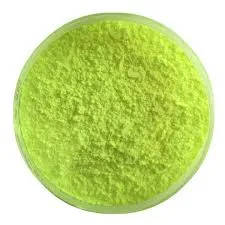Understanding Anionic Polyacrylamide Properties, Applications, and Benefits
Anionic polyacrylamide (APAM) is a water-soluble polymer that plays a crucial role in various industrial applications due to its unique chemical properties. As a derivative of polyacrylamide, anionic polyacrylamide carries a negative charge, which enhances its functionality in numerous fields, including water treatment, agriculture, and paper manufacturing. This article delves into the properties, applications, and benefits of anionic polyacrylamide.
Properties of Anionic Polyacrylamide
Anionic polyacrylamide is synthesized through the polymerization of acrylamide monomers, with the incorporation of anionic groups that impart the polymer its negative charge. The negative charge enhances the polymer’s ability to interact with positively charged particles, making it an effective flocculant. APAM has a high molecular weight, which translates to excellent viscosity and mechanical properties, allowing it to remain stable and soluble in water across a wide range of temperatures and pH levels.
One of the significant characteristics of APAM is its ability to form hydrogen bonds with water molecules, rendering it an effective dispersant. It can absorb water, thereby increasing its volume and assisting in the formation of a gel-like structure. This property is especially beneficial in applications where water retention is essential.
Applications of Anionic Polyacrylamide
1. Water Treatment APAM is widely used in municipal and industrial wastewater treatment processes. Its flocculating properties aid in the aggregation of suspended particles, enabling their removal during sedimentation. The polymer binds with impurities, forming larger flocs that can easily settle or be filtered out. This process not only enhances the clarity of water but also improves the overall efficiency of the treatment plants.
2. Agriculture In agricultural applications, anionic polyacrylamide is often employed as a soil conditioner. By improving soil structure and increasing its moisture retention capacity, APAM aids in better water management and reduces erosion. Farmers incorporate APAM into irrigation systems, leading to improved crop yields and reduced water usage, which is especially crucial in arid regions.
polyacrylamide anionic

3. Mining and Mineral Processing In the mining industry, APAM is used for the flotation process, aiding in the separation of minerals from ores. It helps in controlling the size and sedimentation rate of particles, facilitating more efficient mineral recovery.
4. Paper Manufacturing Anionic polyacrylamide is also utilized in the paper manufacturing industry as a retention and drainage aid. It helps in improving the retention of fillers and fibers during the paper-making process, thereby enhancing the quality and strength of the final product.
Benefits of Using Anionic Polyacrylamide
The advantages of anionic polyacrylamide stem from its unique properties. Firstly, its effectiveness as a flocculant leads to enhanced water clarification, resulting in significant cost savings in water treatment processes. By reducing the need for additional chemicals and energy in sedimentation, APAM contributes to a more sustainable approach to wastewater management.
Secondly, in agriculture, its ability to retain moisture means farmers can optimize their irrigation practices, leading to improved sustainability. The reduction in water usage not only conserves resources but also mitigates the impact on local water tables.
Furthermore, its biodegradable nature presents an environmental benefit, as it breaks down without leaving harmful residues. This is particularly relevant in an era where environmental regulations are becoming increasingly stringent.
Conclusion
In summary, anionic polyacrylamide is a versatile polymer with extensive applications across various industries. Its properties as a flocculant and soil conditioner make it an invaluable asset in water treatment, agriculture, mining, and paper manufacturing. By harnessing the benefits of APAM, industries can improve efficiency, reduce costs, and promote sustainability in their operations. As advancements in polymer chemistry continue, the applications and efficacy of anionic polyacrylamide are set to expand further, reinforcing its importance in modern industrial practices.

